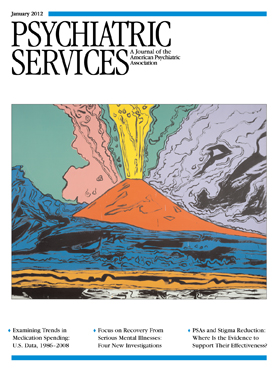Assessing Recovery of People With Serious Mental Illness: Development of a New Scale
Abstract
Objectives:
The authors describe the development of the Maryland Assessment of Recovery in People with Serious Mental Illness, or MARS, a 25-item self-report instrument that measures recovery of people with serious mental illness, and report a study of its psychometric properties.
Methods:
Doctoral-level scientists with expertise in serious mental illness drafted a set of survey items about the recovery process. Items reflected recovery domains outlined by the Substance Abuse and Mental Health Services Administration. After consultation with a panel of experts on recovery that included consumers and clinical scientists and with a small group of consumers, the instrument was narrowed to 67 items and administered to 166 individuals recruited from outpatient mental health clinics in two states. Item response theory and classical item analysis were used to select best-fitting items, reduce item redundancy, and improve the psychometric properties of the scale. Principal components analysis and confirmatory factor analysis were conducted to further examine dimensions of recovery measured by the scale.
Results:
The MARS is quite practical for use with individuals with serious mental illness. It demonstrated excellent internal consistency (Cronbach's α=.95) and test-retest reliability (r=.898) and good face and content validity.
Conclusions:
The data provide initial support for use of the MARS to measure recovery of people with serious mental illness. (Psychiatric Services 63:48–53, 2012)



